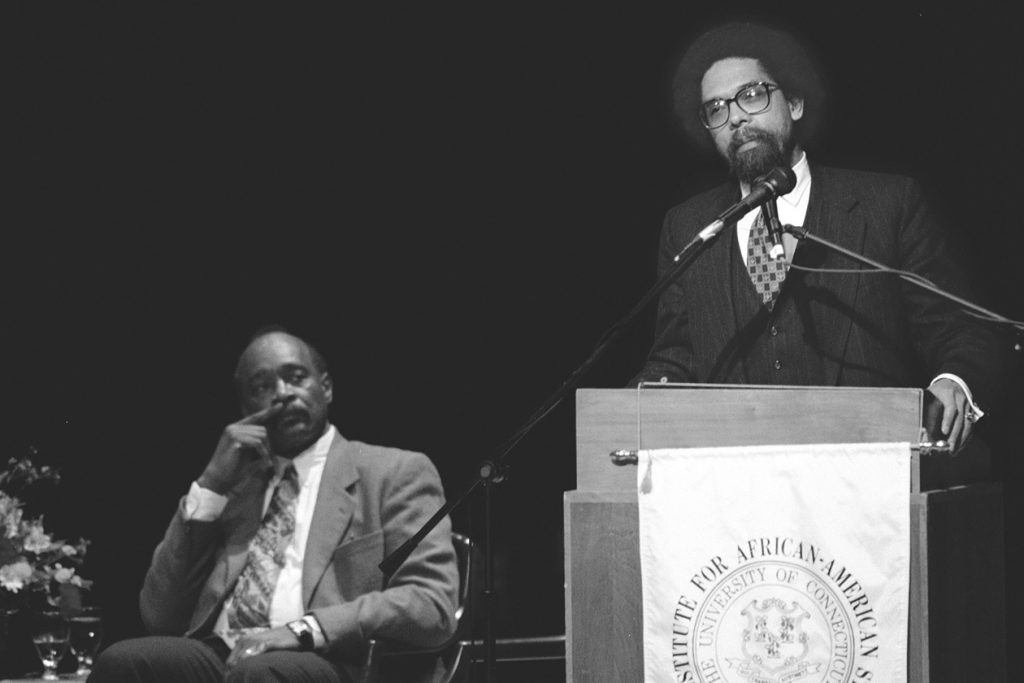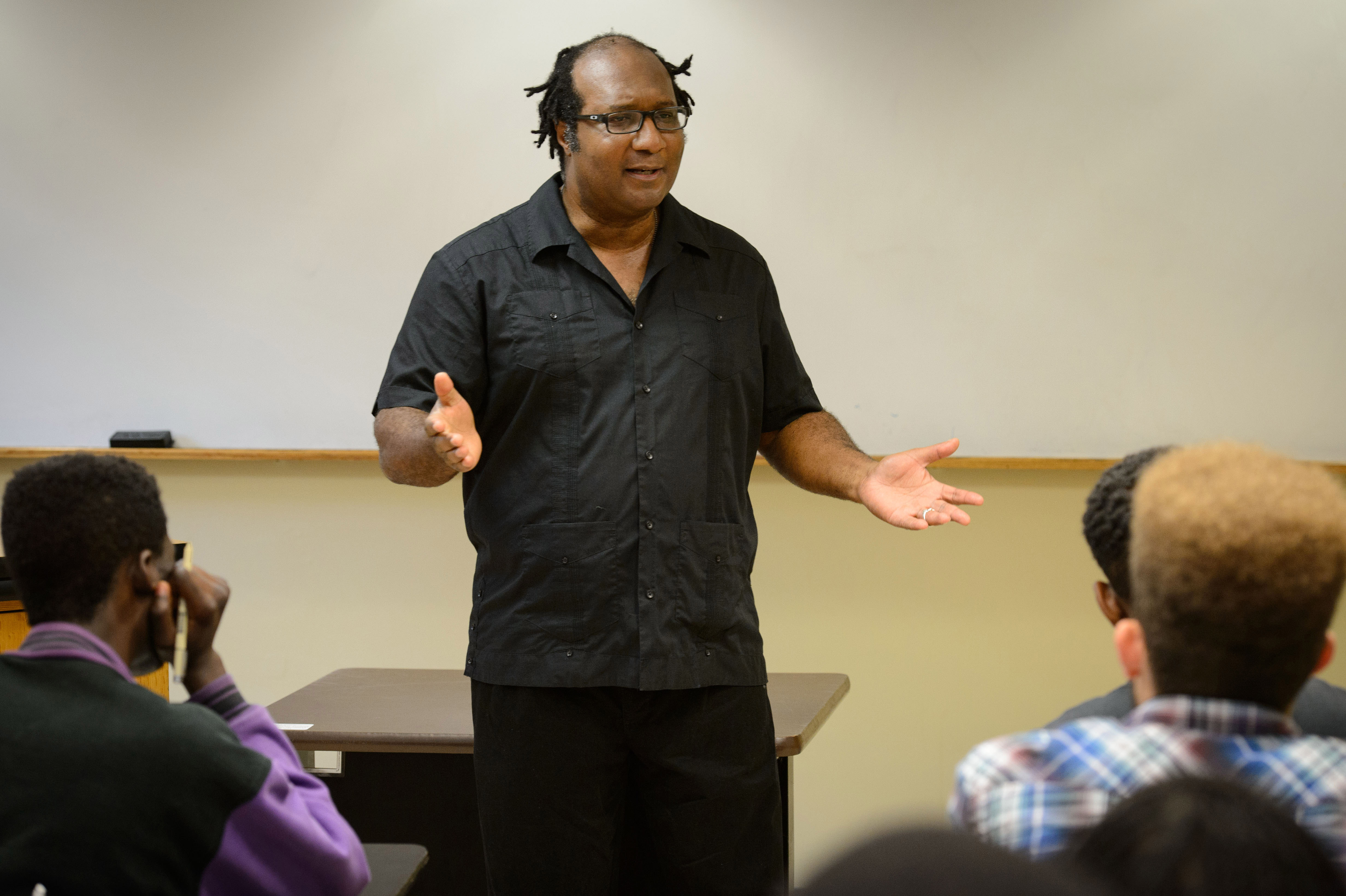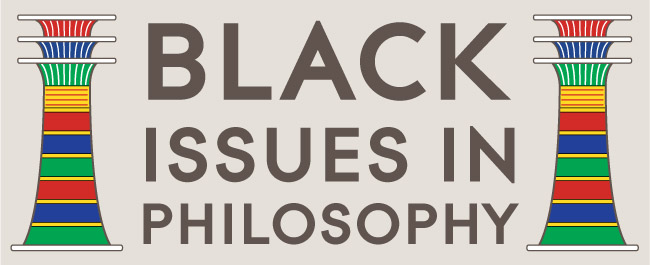A new blog series, Black Issues in Philosophy, that is produced by an editorial team based in UConn’s philosophy department, has been launched recently on the website of the American Philosophical Association (APA).
Lewis Gordon, a professor of philosophy with affiliations in Judaic studies, Caribbean and Latina/o studies, and Asian and Asian American studies, serves as executive editor for Black Issues in Philosophy, which was launched in late October 2017 and incorporated as part of the APA’s existing Diversity and Inclusiveness blog. The editorial team he leads is comprised of UConn faculty and graduate students.
For me, philosophy is always concerned with reality. … One thing when you sit and write a blog is that you’re steeped in reality. — Lewis Gordon
Considered a leading scholar on black existentialism, Gordon says the blog aims to provide a forum for examining questions and issues of relevance in the African Diaspora, where readers can expect intelligent discussions from a variety of perspectives. He says the blog format provides an innovative way to communicate a variety of issues that arise in an environment where instant information is expected.
“It struck me it would be very important to catch up with what many young people and the general public are doing in the blogosphere, which is defining creative ways of communicating issues that may be of great concern but may not work well in a journal, a book, or a newsletter,” Gordon says. “We decided a blog would bring issues of concern not only to black philosophers, but also to anybody interested in issues that pertain to the kind of philosophical research black philosophers are engaged in.”
Among the initial topics covered in the blog:
• A profile of Donna-Dale Marcano, associate professor of philosophy and director of the Human Rights Center at Trinity College in Hartford, and her work in black feminist philosophy by UConn doctoral student Tom Meagher.
• Reflections on the 2017 Australiasian Society for Continental Philosophy conference in Tasmania by Gordon, who spoke at the conference, and philosophers from University of Queensland, University of South Wales in Sydney, and Queensland University of Technology.
• An excerpt of an interview with Harvard philosopher Cornel West by Rosemere Ferreira da Silva, a research scholar at UConn and associated professor of philosophy at the State University of Bahia in Brazil, which was conducted for a book she is writing on black intellectuals.
• A report on a series of panel discussions at the Frantz Fanon Foundation 10th anniversary event celebrating the work of the Martinique social philosopher by Nelson Maldonado-Torres, associate professor of Latino and Caribbean Studies and comparative literature at Rutgers University.
• A piece titled “Does Race Trump Gender? Intersectionality and Charles Mills,” by UConn doctoral student in political science Brooks Kirchgassner.

Gordon says the immediacy of the blog format provides opportunities to profile individuals who are doing significant work that may not become widely known until they can publish a major journal article or book. An example of this, he notes, is the posting on Rosemere da Silva Ferreira, who conducted her interview with West during early research for the book on black intellectuals and before his criticism of President Barack Obama in 2015. “We were excited about that [interview] because it has an element of poignancy,” he says. “It’s important to see Cornel West as a reflective, prescient intellectual and that [his criticism] was coming from a place of being an analyst and social critic as well as a philosopher.
“It is my hope that as people look into this blog, they say, Hmm, and go out and start looking at things in a more rich way,” Gordon adds. “The team and I have been trying to make sure it’s not a reactionary blog, one that chases any controversy and has to make a statement on it. I see it as more of a thought-provoking blog.”
Black Issues in Philosophy was created by the APA Committee on the Status of Black Philosophers and serves as an additional information outlet to supplement the biannual newsletter, Philosophy and the Black Experience, which is in its third decade of publication. Since 2001, its content has included a mix of articles and book reviews each fall and spring. The newsletter is one of 12 specialized APA publications on the organization’s website, which also includes a primary blog with links to several general areas of interest, such as research, service, and teaching.
“The [new] blog allows us to highlight issues of concern within the global community of black philosophers and to profile the work of black philosophers who may have been overlooked,” says Julie E. Maybee, a professor of philosophy at Lehman College at City University of New York and chair of the APA Committee on the Status of Black Philosophers. “Although the kind of work that the blog highlights has been going on for some time, now seemed like a good time in particular to bring attention both to that work and to the issues that the work discusses. The blog is another way for the committee and its community of philosophers to assert its voice at a time when there is an attempt to suppress that voice.”
Maybee says Gordon has been online discussing what is known as “public philosophy” for some time, and hopes the new blog will inspire more young philosophers who obtain information from blogs and other internet-specific formats to take an interest in philosophical issues that the community of black philosophers globally cares about.
Gordon notes that a blog lets go of “some of the pretense of ways of writing” and focuses primarily on communication. It also creates a forum for a broader community of people to write in, he says. “The other thing we’re insisting on is to make sure you can read through it very quickly and think about what it says. That’s why each issue is short and focused. It’s also good for a lot of students who work with us, and for our colleagues, to learn how to communicate effectively in a very direct, short context.”
He says he’s very proud of the fact that this blog is coming out of UConn. “It will be great to see what some of these young people do over time. They’re starting their career reflecting in a very engaging way on how to do philosophical work,” he says. “For me, philosophy is always concerned with reality. I know there are some who are very cynical about that. One thing when you sit and write a blog is that you’re steeped in reality.”




